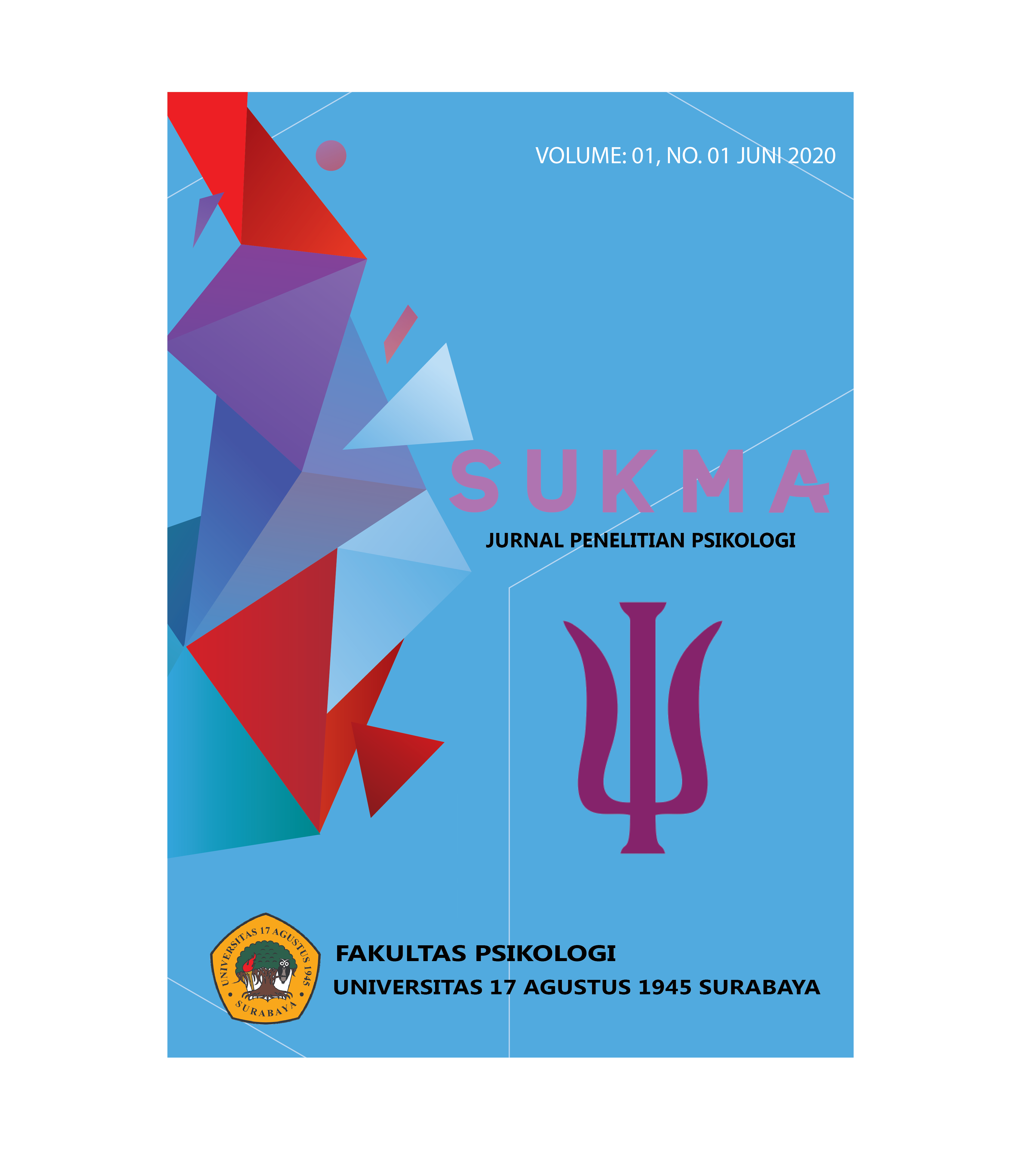KONSEP DIRI DAN KEMATANGAN KARIR PADA MAHASISWA TINGKAT AKHIR
Abstract
This study aims to determine the relationship between self-concept and career maturity in the final year students. The research subjects were final year students at the Faculty of Psychology at Surabaya, with a sample of 100 people taken by random sampling technique. Data collection uses a career maturity scale developed by the researcher and a self-concept scale adopted from Willian H. Fitts (1965), using a Likert model. The data analysis technique uses the person product-moment correlation test, with the results of the correlation coefficient (r) between self-concept variables and career maturity of 0.588 with a p-value of 0.000 (p <0.05) which means that there is a positive relationship
Keywords: self-concept, career maturity
Penelitian ini bertujuan untuk mengetahui hubungan antara konsep diri dengan kematangan karir pada mahasiswa tingkat akhir. Subjek penelitian adalah mahasiswa tingkat akhir di fakultas psikologi untag Surabaya dengan sampel sebanyak 100 orang yang diambil dengan teknik random sampling. Pengumpulan data menggunakan skala kematangan karir yang dikembangkan sendiri oleh peneliti dan skala konsep diri yang mengadopsi dari Willian H. Fitts (1965), dengan menggunakan model Likert. Teknik analisis data menggunakan uji korelasi person product momen, dengan hasil koefisien korelasi (r) antara variabel konsep diri dan kematangan karir sebesar 0,588 dengan nilai p 0.000 (p< 0,05) yang berarti bahwa ada hubungan positif yang signifikan antara variabel konsep diri dan kematangan karir pada mahasiswa tingkat akhir.
Kata kunci: Konsep diri, Kematangan karir
Downloads
References
Abidin, Sazali Zainal and Mohamed Ariff,
A Malaysian Perspective.
Investment Management and
Financial Innovation (3), Journal:
International Portfolio Deversification:.
Agati, Angela, 2007. The Effect of
International Diversification on
Portfolio Risk. USA: Journal,
Illinois Wesleyan University.
Ahmad, Kamarudin, 2003. Dasar-Dasar
Manejemen Investasi dan Portofolio.
Jakarta: PT Asdi Mahasatya.
Bodie, Zvie and Alan J. Marcus, 2014.
Manajemen Portofolio dan
Investasi. Jakarta:Salemba Empat.
De Santis, Roberto A and Lucio Sarno,
: Assesing The Benefits of
International Portfolio Diversification
in Bonds and Stocks. European
Central Bank.
Eun, Cheol S and Bruce G Resnick,









